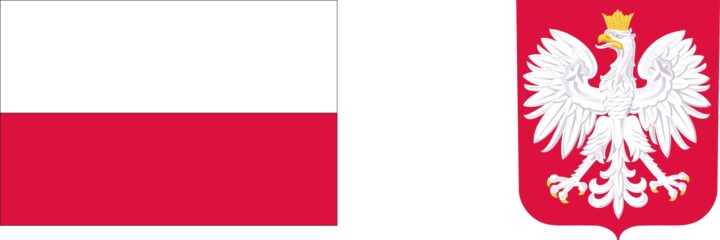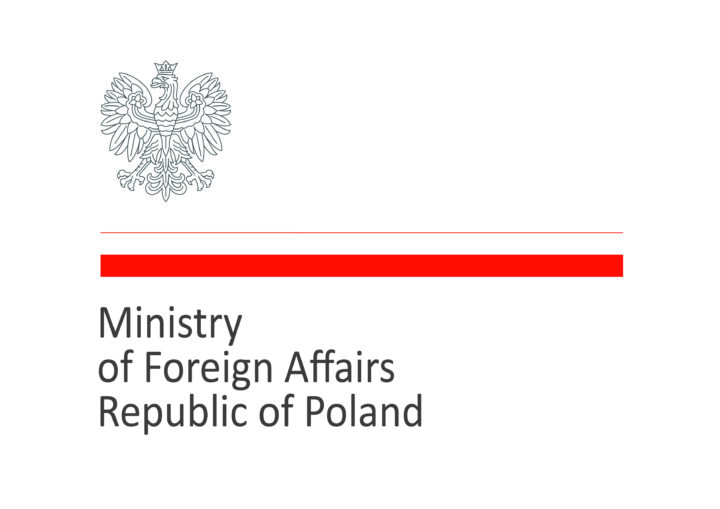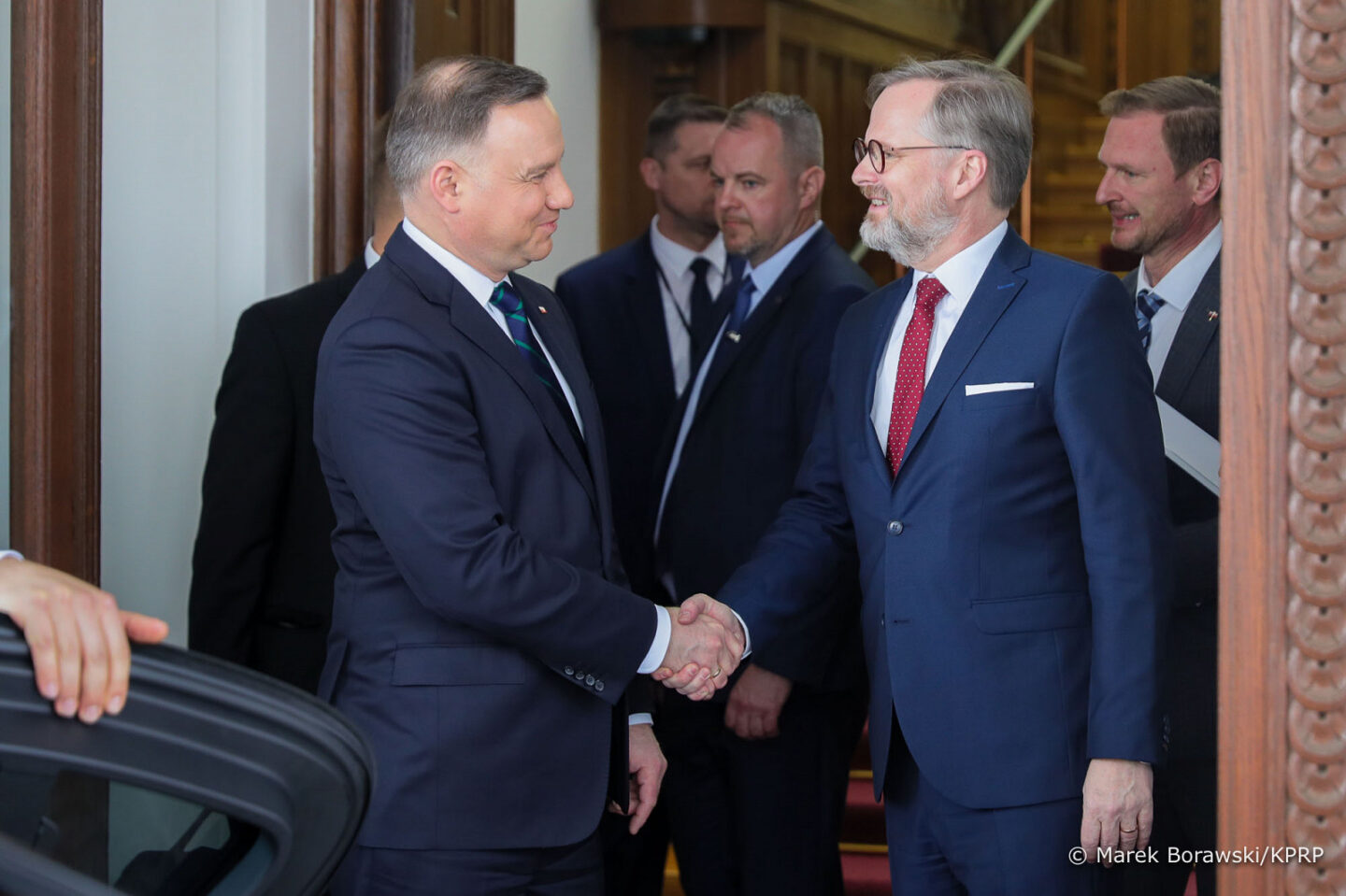Czech expert: I am concerned with many things, but I do not worry at all that the Czech and Polish cooperation will deteriorate
I am concerned with many things that may happen in the future, but I do not worry at all that the Czech and Polish cooperation will possibly weaken or deteriorate. On the contrary. What we are currently witnessing, is its strengthening and intensification. Czech conservatives consider Poland as a key to stopping Russia – without it, Russians would already be in Prague and Berlin. Even Czech liberals, previously critical towards Warsaw, have noticed that the Polish support for Ukraine is of crucial importance.
Uncertainty of the Czech internal policy
Elections to the Chamber of Deputies of the Parliament of the Czech Republic held in October 2021 brought aboout a radical political change. The majority of parties previously belonging to the opposition were elected, a government of a new Prime Minister, Petr Fiala, was formed, and the former Prime Minister, Andrej Babiš, and his party joined the opposition. Furthermore, two traditional parties, socialist and communist, did not exceed the five percent threshold, so they did not get into the Parliament. On the centenary jubilee of their party, the communists gave to the Czechs the best present possible, by disappearing from the Parliament.
However, the current government coalition, despite its easy majority in the Parliament, is politically heterogeneous, and in the current situation this leads to a question whether it will manage to survive in this form until the end of the term or whether any of the parties forming it passes to the opposition.
Furthermore, the Czech Republic faces the presidential election at the beginning of next year. The current president, Miloš Zeman, cannot run for the office, so the group of those interested in taking the position of the president will be numerous. Thus, the process of political changes, started in October 2021, will end only on 7 March 2023, with taking of the office by the new president.
The victory of the current government coalition results from a significant luck. The coalition consists of five parties, which formed two voting blocks. On one side, it includes the Spolu group, with its leader Petr Fiala, the current Prime Minister, and consisting of ODS, main central right party in the Czech Republic, KDU-ČSL, the Czech Christian democratic party, and a small liberal party TOP. Spolu won 27.8% of all votes casts, and this translated into 71 mandates (out of a total number of 200). The said 71 mandates have been allocated as follows: 34 for ODS, 23 for KDU-ČSL, and 14 for TOP.
The second group forming the parliamentary majority was the Pirates and Mayors (and independent candidates) alliance, which won 15.6% of votes and 37 mandates. Due to preferential votes, the Mayors won 33 mandates, while the previously favoured Pirates got only 4 of them. Thus, the Pirates became the greatest looser of the last year’s Czech Parliamentary elections, and are not necessary to maintain the coalition’s majority in the Parliament (the coalition has 108 mandates with them, while without them it would have 104 out of 200 mandates).
In the last year’s elections, Andrej Babiš and his party ANO got 27.1% votes and 72 mandates, i.e., more than Spolu. However, unlike Fiala’s party, Andrej Babiš did not have coalition partners to build the majority in the Parliament. His potential partners did not get into the Parliament. Thus this victory proved to be a Pyrrhic one for Babiš. The fourth formation that got into the Parliament was the SPD party of populist Tomio Okamura, which won 9.6% of votes and 20 mandates. Together, Babiš and Okamura have only 92 mandates.
However, the political potential of Andrej Babiš should not be underestimated. His loss to Spolu, expressed as percentage, was only minimal, and in fact, he got one mandate more than Spolu. Although Spolu won in eight and ANO in six regions of the Czech Republic, yet ANO won in decisively larger number of municipalities.
Will the new government fall?
Another crucial election, this time, presidential, will take place in 2023. A record number, even above 20, of runners for the office is expected, where maximum four have a real chance to survive to the second round. Petr Fiala, who is respected by many and would have a real chance to win it, has already announced that he does not intend to run for the office and wishes to remain the prime minister.
Everybody is waiting whether Andrej Babiš will announce that he will run for the office, as he would have a real chance to survive to the second round. However, an effect of “everybody against Babiš” could occur in it, in consequence of which he could eventual lose and deteriorate his political strength. As a leader of the opposition with a high support, he has a significant chance to win the future Parliamentary election in 2025, as at that time the current government will probably become unpopular and will be criticised by everybody.
The current Czech government is in unfavourable situation that it inherited from its predecessors. Two years of the lockdown caused by the COVID-19 pandemic severely affected the Czech economy. Furthermore, following the Russian aggression on Ukraine, the prices of energy and transport have been rising – and this means higher prices of practically all goods. Inflation is already eating into income and savings of us all.
Furthermore, people got used to subventions in amounts unknown before COVID. The demand for the state money, but not the income of the state or its citizens, will continue to increase. From the fiscal point of view, the government faces a mission impossible, so it can be expected that its popularity will regularly decrease in the nearest future.
Problems are already looming on the horizon. Let’s have a closer look at the composition of the Czech government coalition itself. It consists of two large (ODS and Mayors), one medium (KDU-ČSL), one small (TOP), and one very small (Pirates) parties. Two of the parties (ODS and KDU-ČSL) in this coalition are conservative, two (TOP and Pirates) are liberal, and one (Mayors) is central (or simply undefined), and its MPs and ministers are partly liberal and partly conservative. TOP is the only party that knows that it would not pass the five percent threshold on its own – it got to the Parliament solely by forming the election alliance Spolu with ODS and KDU-ČSL. The Pirates, on the other hand, paid dearly for their cooperation with the Mayors, and it appears that now they will want to make up for this by loudly promoting programme that is radically liberal on cultural and moral issues.
Prime Minister Petr Fiala is very loyal to his coalition partners, possibly even more than he actually should. As a man, he is conservative, as far as you can be a conservative in the country that is so secularized and egalitarian like the Czech Republic and still have a chance to become a prime minister. He believes in conservative values, is a former dissident and a Catholic from Moravia, even more, a member of an underground church and attendant of Roger Scruton’s seminars in Brno in the 1980s. An open question is whether it will be the loyalty to his coalition partners or the loyalty to his own conservative values and beliefs that will prevail.
Czech foreign policy
All Czech governments tried to cooperate both within the European Union, and within the Central European Visegrád alliance of four states. During the migration wave (in 2015-2016), governments and political representations of Poland, Czech Republic, Slovakia and Hungary adopted the same position: we do not want obligatory quotas for acceptance of migrants from the civilisation that is far away and strange to us. Then the Central European political awareness became to form within the European Union.
When the criticism of left wing and liberal mainstream of the Western Europe, directed at Poland and Hungary, started to intensify, Czech liberals, wishing to be perceived as more Western than Central European, started to call for weakening the cooperation within the Visegrád Group, and for the Czech Republic to distance itself from Poland and Hungary. However, they were not greatly successful in this regard.
The former Prime Minister, Andrej Babiš, maintained very good relations with Viktor Orbán, though those with the Polish leaders were not as flourishing. On formation of the current coalition and Fiala’s government, some liberal politicians from the Pirates party, the Mayors or TOP voiced opinions that the Czech Republic should cease to be loyal to Poland and Hungary.
However, this belief is not shared by Czech conservatives from ODS and KDU-ČSL. They consider the left wing and liberal criticism of Poland and Hungary exaggerated and full of hypocrisy, because these countries are criticised not for the actions of their governments, but for their nationalist and conservative beliefs. Czech conservatives think that the Central European cooperation should be based on geopolitics and realism, and that good relations and cooperation with the neighbouring countries are important, regardless of who currently governs them.
Permanent close relation between Poland and Czech Republic
Conservatives consider Poland and good Czech-Polish relations as being of a great importance for Central Europe security. As a regional power, Poland is consider to be crucial for stopping the Russian “Drang nach Westen” – if there was no Poland, Russians would have already got to Prague and Berlin.
One of the first things that new Prime Minister Fiala did was to end with a compromise the Czech and Polish dispute over the Turów mine. Efforts aiming at maximising the Czech-Polish alliance can be expected from Prime Minister Fiala and ODS.
Then, the Russian Putin’s aggression on Ukraine came, and the situation became clear to a large extent. The Czech Republic, together with the United Kingdom and the Baltic States, belongs to the most pro-Ukrainian countries in Europe, after Poland. In Prague, Ukrainian flags are displayed not only on public and government, but also on cultural and private buildings.
Czech liberals and conservatives fully agree that Ukraine must be supported, and this is important for them and connects them. Furthermore, even liberals saw that the Polish support for Ukraine is crucial, therefore, in a situation of the Russian aggression on Ukraine, a very close cooperation between Poland and the Czech Republic can be expected. Somehow, the Ukrainian question stilled liberal critical voices directed at Poland.
Viktor Orbán’s position on that issue, on the other hand, significantly differing from that of governments of Poland, Czech Republic, and Slovakia, may result in cooling of relations within the Visegrád Group, or more specifically, in weakening the cooperation with Budapest. In case of the Czech Republic, this is caused by the foreign policy of that country, which remains neutral on question of the Russian aggression in Ukraine, while Poland, Czech Republic and current Slovakian government are convinced that Russian defeat in Ukraine is crucial for the security of the entire Europe.
As long as our foreign policy and security policy are dominated by the question of Russian aggression on Ukraine, the Czech-Polish cooperation will be as close, intense and strong as it has not been since 1994, when in the Jazz Club Reduta in Prague Václav Havel and Lech Wałęsa jointly convinced Bill Clinton to agree to NATO expansion.
And the man who significantly contributed to this is the same person who has the greatest “achievements” in further expansion of NATO: Vladimir Vladimirovich… Putler.
This article is available under a Creative Commons Attribution 4.0 International license. Some rights reserved to the Author of the article and the Jagiellonian Club. The article was created within the framework of „Polish-Czech Forum for the rapprochement of societies, deepened cooperation and good neighborliness 2022”. Any use of the work is allowed, under the condition that the above-mentioned information is preserved, including information about the applied license, rights holders, and that a link to our website is provided.
The opinions expressed in this publication are those of the authors and do not reflect the views of the official positions of the Ministry of Foreign Affairs of the Republic of Poland. Public task financed by the Ministry of Foreign Affairs of the Republic of Poland within the grant competition „Polish-Czech Forum 2022”.






